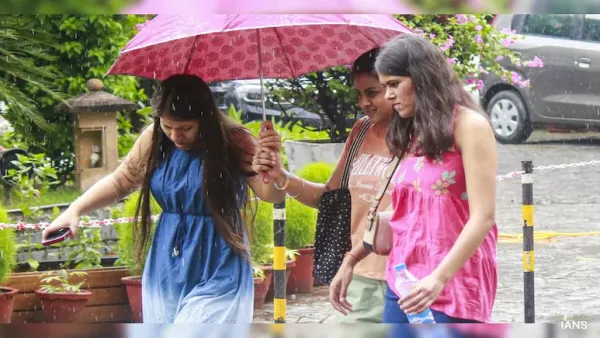In a significant development that will have regional implications, former Bangladesh prime minister Sheikh Hasina and two former senior officials, have been charged by the interim regime for "crimes against humanity for their roles in the violent crackdowns during the 2024 student-led uprising".
Bangladesh's former home minister Asaduzzaman Khan Kamal and ex-IGP Chowdhury Mamun are also named as co-accused along with Hasina. The interim regime may once again push Hasina's extradition from India after this development. However, the India-Bangladesh extradition treaty does not extradite if the case is found political in nature. Hasina was ousted through Pakistan and Islamists-backed student movements.
An "investigation" report found that Hasina 'directly ordered' state security forces, her political party and affiliated groups to conduct operations resulting in mass casualties. "These killings were planned," chief prosecutor Tajul Islam said in a televised hearing on Sunday, citing video evidence and encrypted communication between different agencies.
The case listed 81 people as witnesses, Islam said. Prosecutors also alleged that Hasina, as head of the government, bears command responsibility for security force operations during the unrest. Islam brought charges against Hasina and the two men of "abetment, incitement, complicity, facilitation, conspiracy, and failure to prevent mass murder during the July uprising".
"This is not an act of vendetta, but a commitment to the principle that, in a democratic country, there is no room for crimes against humanity," he said
Incidentally Tajul Islam, appointed by the Yunus regime, maintains close connections with Islamists and the Jamaat-e-Islami. Islam was a defence lawyer of Jamaat leaders charged with war crimes at the International Crimes Tribunal. He defended Jamat's Leader Abdul Qader Molla at the ICT in 2013, who was sentenced to death. He was the defence lawyer of Mujahid, secretary general of Bangladesh Jamaat-e-Islami, and charged with committing war crimes during the 1971 Liberation War.
Ironically, the ICT was set up by Hasina in 2009 to investigate crimes committed by the Pakistani army during Bangladesh's war for independence in 1971.
Bangladesh's former home minister Asaduzzaman Khan Kamal and ex-IGP Chowdhury Mamun are also named as co-accused along with Hasina. The interim regime may once again push Hasina's extradition from India after this development. However, the India-Bangladesh extradition treaty does not extradite if the case is found political in nature. Hasina was ousted through Pakistan and Islamists-backed student movements.
An "investigation" report found that Hasina 'directly ordered' state security forces, her political party and affiliated groups to conduct operations resulting in mass casualties. "These killings were planned," chief prosecutor Tajul Islam said in a televised hearing on Sunday, citing video evidence and encrypted communication between different agencies.
The case listed 81 people as witnesses, Islam said. Prosecutors also alleged that Hasina, as head of the government, bears command responsibility for security force operations during the unrest. Islam brought charges against Hasina and the two men of "abetment, incitement, complicity, facilitation, conspiracy, and failure to prevent mass murder during the July uprising".
"This is not an act of vendetta, but a commitment to the principle that, in a democratic country, there is no room for crimes against humanity," he said
Incidentally Tajul Islam, appointed by the Yunus regime, maintains close connections with Islamists and the Jamaat-e-Islami. Islam was a defence lawyer of Jamaat leaders charged with war crimes at the International Crimes Tribunal. He defended Jamat's Leader Abdul Qader Molla at the ICT in 2013, who was sentenced to death. He was the defence lawyer of Mujahid, secretary general of Bangladesh Jamaat-e-Islami, and charged with committing war crimes during the 1971 Liberation War.
Ironically, the ICT was set up by Hasina in 2009 to investigate crimes committed by the Pakistani army during Bangladesh's war for independence in 1971.





